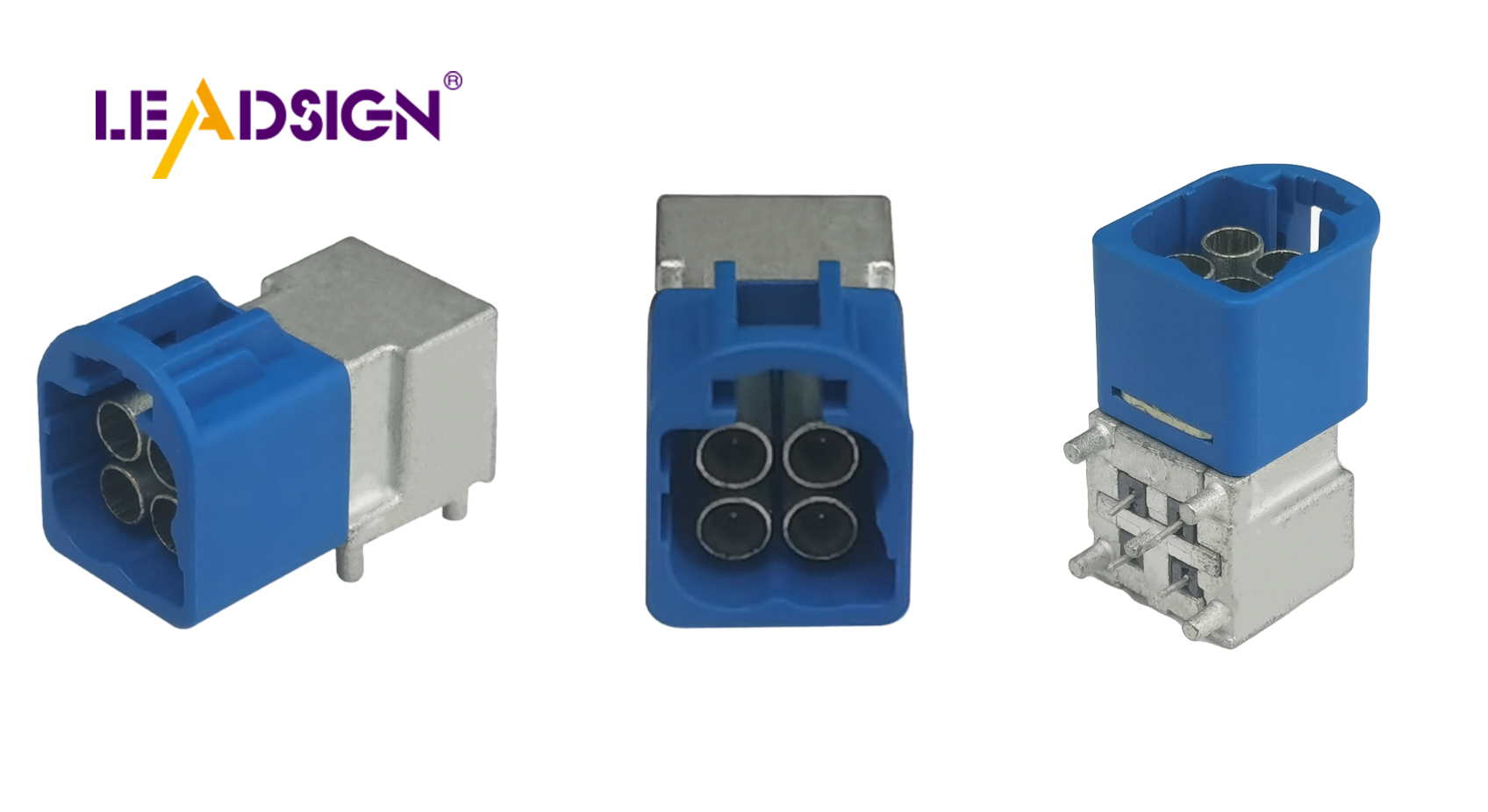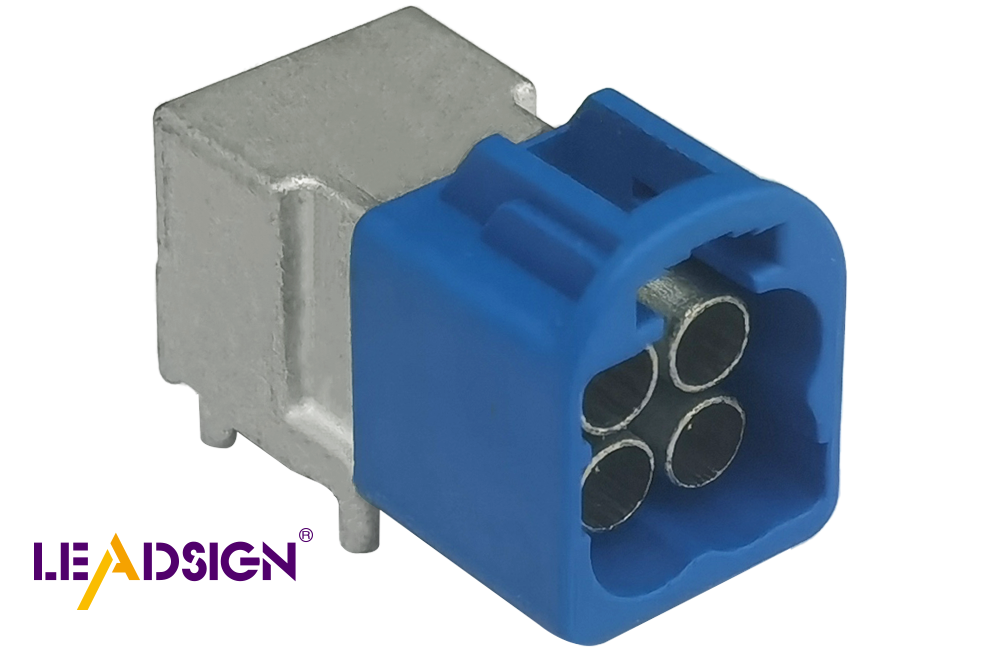Effective Use of Auto Wire Connector Types in Vehicles

Automotive electrical connectors types are essential for cars to function efficiently. They ensure that all the vehicle's electrical components operate seamlessly. These connectors power the engine and maintain the radio's functionality. High-quality connectors are crucial as they prevent major issues and guarantee robust connections. The market for automotive connectors is rapidly expanding, with a growth rate of 5.8% annually until 2026. Understanding the various types of automotive electrical connectors helps you select the most suitable ones for your vehicle.
Types of Auto Wire Connectors

Knowing different automotive electrical connectors types helps you choose the right ones for your car's wires. Let's look at some common kinds and what makes them special.
Blade Connectors
Features and Applications
Blade connectors are very popular automotive electrical connectors types. They have a flat metal piece that fits into a matching slot. You find them in fuse boxes and other places needing quick connections. Their design makes it easy to plug in and take out, perfect for spots needing regular checks or changes.
Advantages and Disadvantages
Blade connectors have many good points. They connect well and are simple to use, even for beginners. But they might get loose over time, especially with vibrations. Checking them often keeps them working well.
Butt Connectors
Features and Applications
Butt connectors, also called splice connectors, join two wires end-to-end. They last long and work well in tough conditions, making them great for car wiring systems. Use them to make wires longer or fix broken parts, keeping electricity flowing smoothly.
Advantages and Disadvantages
The main good thing about butt connectors is their strong hold against stress from the environment. They're easy to put on with a crimping tool, giving a lasting bond. But once you crimp them, you can't reuse them; changes mean cutting and re-crimping.
Ring Connectors
Features and Applications
Ring terminals are another key kind of automotive electrical connectors types. They have a ring-shaped end that goes over a stud or bolt for a tight connection. You see them in busbars, terminal blocks, and feed-through spots. Their shape ensures they stay connected without falling off by accident.
Advantages and Disadvantages
Ring connectors are super easy to put on and keep up with. They give a dependable connection, perfect for important uses. But they need a bolt or stud to attach, which can limit where you use them.
By knowing these automotive electrical connectors types, your car's electric systems can stay strong and reliable. Each type has its own perks and possible downsides, so pick the one that fits your needs best.
Spade Connectors
Spade connectors are important for car wires. They look like a fork, making them easy to attach and remove. You find them in places needing quick connections, like speaker wires or low-power uses. Their shape lets you slide them under screws or bolts easily.
Features and Applications
Spade connectors have special features:
Easy to Use: The fork shape makes connecting fast. You don't need to take out the screw all the way.
Versatile: They work in many places, from speakers to other low-power spots in your car.
Secure Fit: Once attached, they stay put and keep things working well.
Use spade connectors where you often connect and disconnect wires. They fit well in tight spaces where others can't.
Advantages and Disadvantages
Spade connectors have good points that make them popular:
Advantages:
Fast Setup: They're quick to install, saving time.
Reusable: Unlike some types, you can use them again, which saves money.
Flexible: Easy to change if you need to fix your car's wiring.
Disadvantages:
Can Get Loose: Vibrations might make them loose over time; check often.
Low Power Limit: Not good for high power use, so they're limited sometimes.
Knowing about different wire connectors helps pick the best one for your car's needs. Each type has its own perks, so choosing right keeps your car's electric parts working well.
Roles of Wire Connectors in Vehicle Systems
Wire connectors are very important for your car. They help everything work well, from the engine to the radio. Let's see how they work in different parts of your car.
Electrical System
Your car's electrical system needs connectors to work right. These connectors help share power and send signals, keeping all parts working together.
Power Distribution
Power sharing is key in cars. Automotive electrical connectors types like spade connectors help share power well. They make strong links so power goes where needed. This keeps lights bright and engines running smoothly.
Signal Transmission
Sending signals is also important for your car's electric system. Connectors send messages between parts, helping them talk to each other well. This makes sure all systems work together nicely for a smooth drive.
Safety Systems
Safety systems need good connections to keep you safe. Wire connectors make sure these systems work right, protecting everyone inside.
Airbag Deployment
Airbags keep you safe in crashes. They need connectors to pop out at the right time. Automotive electrical connectors types make sure the signal is fast and correct, giving you safety when needed.
Anti-lock Braking System
The anti-lock braking system (ABS) stops wheels from locking when braking hard. Connectors send signals in ABS, helping it act quickly when you brake. This helps control your car on slippery roads.
Infotainment Systems
Infotainment systems keep you happy and informed while driving. Connectors make sure these systems run smoothly without problems.
Audio Connectivity
Audio needs connectors for clear sound. Automotive electrical connectors types like spade connectors give stable links, making music play without stopping. This makes driving more fun.
Navigation Systems
Navigation helps guide you where to go. Connectors send signals from GPS to screen, giving correct directions so you don't get lost.
Wire connectors are key for your car's electric system. But they can have problems. Let's see what issues happen and how to fix them.
Spotting Common Problems
Knowing wire connector problems helps keep your car's electric parts working well.
Rusting
Rust often harms connectors, especially in wet or salty places. It stops electricity from flowing right, causing bad performance or failure. You might see green or white stuff on connectors, showing rust.
Loose Links
Loose links happen when connectors aren't tight enough. This causes flickering lights or systems not working right. Driving shakes make this worse, loosening connectors over time.
Stopping Problems Before They Start
Doing certain things can stop these common issues and keep your car's electric system good.
Regular Check-ups
Checking regularly stops connector troubles. Look at them often for wear, rust, or looseness. Tighten loose ones and clean rusty spots with cleaner. This easy habit saves you big problems later.
Using Protective Covers
Putting covers on connectors keeps water and rust away. These covers block water from touching metal parts. Use products made for cars to work best.
Getting Expert Help
Sometimes you need experts for tricky connector issues.
When to Ask for Help
If you have ongoing electric problems or see lots of rust or damage, get expert help. Experts find the problem fast and fix it right.
Why Experts Are Good
Experts know a lot about electric systems and have special tools. They make sure your car's connectors fit well and work right, giving you peace of mind that everything is safe.
By knowing these issues and stopping them early, your car's electric system stays strong. Regular checks and expert help when needed keep wire connectors working great.
Picking the right connectors for your car is important. They help all electric parts work well. Do regular check-ups and use covers to stop rust and loose links. If things get tricky, ask experts for help. They know how to keep your car's wires safe and working right. Be active in caring for your car, and it will run great!
See Also
The Significance of HFM Connectors in Automotive Applications
The Value of HSD Connectors in Automotive Sector
The Significance of Fakra Connectors in Contemporary Cars
The Value of Fakra Connectors in Automotive Applications
Improving Data Transfer: The Value of High-Speed Automotive Connectors

